My friend and Platform ally Lucy Fairley has died, aged 70. We’ve known her and her work for nearly 25 years and worked especially closely with her in the late 1990s. She founded Artists Agency in Sunderland in 1983, and in 1987 appointed Esther Salamon to join her initially as Placement Officer, then as in 1988/9 as Co-Director. They worked closely for 16 years, later changing the organisation’s name to Helix Arts. It is one of the country’s early pioneers in social, environmental and critical arts.
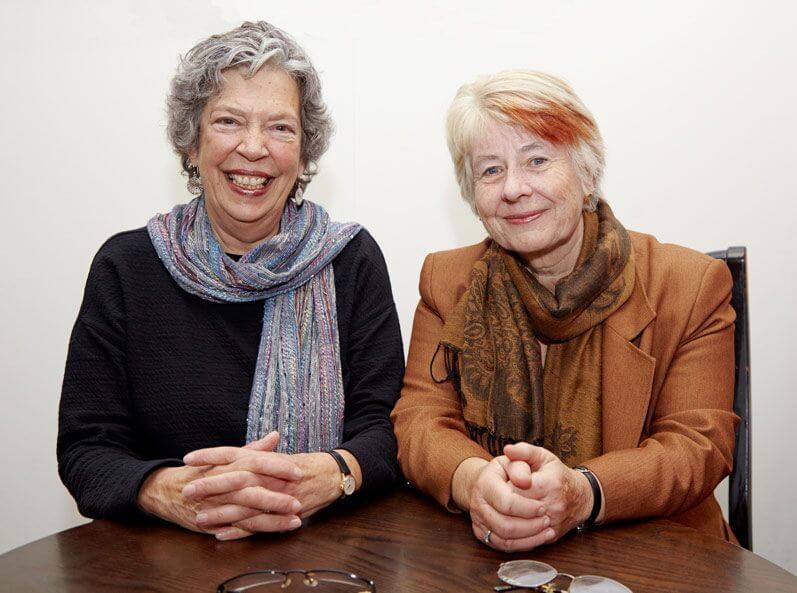
I first met Belfast-born Lucy in 1994 through Platform, in the hubbub of an artist-led, environmental and social change gathering. This was the Littoral Conference, held in Salford, the brainchild of Ian Hunter and Celia Larner of Projects Environment*. We discovered we had much in common, especially around transdisciplinary approaches to social and environmental problems. Specifically, Platform and Artists Agency were both working on water, the politics and practicalities of river restoration, us in London and Artists Agency in the north-east. We quickly learnt more about each other’s work and goals, and became firm allies.
Lucy invited us to be involved in early discussions on Artists Agency’s groundbreaking new project to restore the polluted Stanley Burn in County Durham. It was running orange with toxic metals as a result of leaching from mining spoil heaps, after the closure of the industry in the 1980s. She was working in collaboration with Quaking Houses Environmental Trust – the local village group – led by ex-miner Terry Jeffrey, and hydrologist Dr Paul Younger, then at the University of Newcastle. I can remember the first meeting we attended, where Lucy brought Terry, Paul and us together with a representative from Northumbria Water (who had reluctantly come as a replacement for someone else, but who was transformed by the meeting); and, brilliantly, a Somali woman friend of Lucy’s who shared with us her own perspectives on water, including the effort it takes to fetch and carry water in her part of the world, where women routinely walk for more than 5 miles a day for fresh water due to lack of infrastructure. It was an electric combination of people typical of Lucy. It was an electrifying beginning for the project. At that time, it was not the norm to mix disciplines and perspectives, and round the table we felt how transgressive it was: yet it defined Lucy and Artists Agency’s approach.
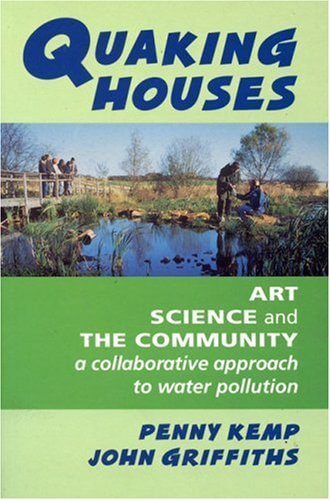 ‘The Seen and the Unseen’ became a visionary long-term odyssey, running from 1995-9, involving the local community, artists, hydrologists, a wetland, landscape design, and education. It pioneered reed-bed filtering, it stirred up a huge amount of energy and creativity in the village, in the region and internationally, and in terms of the ecology, it worked: it cleaned the river. Lucy and the team also made sure that the work was fully documented and made public as they went along. They shared the huge amount of learning through print, website, and gatherings. But to achieve that, it took the unique drive and passion of Lucy to overcome the hurdles, for such projects are never plain sailing. The hurdles were not just about gaining traction for the vision, building momentum locally, regionally and nationally, securing funding, solving practical social and political problems (if these weren’t challenge enough!). In the 1990s, interdisciplinary projects between arts, ecology, community were often treated with suspicion by ‘experts’ schooled in mono-disciplinary thinking such as funders, scientists, artists, official bodies, and critics, as well as by general public. This multi-year high-profile project with its many interweaving layers between the ecological, artistic, social and cultural deeply influenced the course of ecological arts practice in the UK and far beyond. Lucy’s passionate advocacy created a milestone in collaborative practices that address complex ecological and social issues.
‘The Seen and the Unseen’ became a visionary long-term odyssey, running from 1995-9, involving the local community, artists, hydrologists, a wetland, landscape design, and education. It pioneered reed-bed filtering, it stirred up a huge amount of energy and creativity in the village, in the region and internationally, and in terms of the ecology, it worked: it cleaned the river. Lucy and the team also made sure that the work was fully documented and made public as they went along. They shared the huge amount of learning through print, website, and gatherings. But to achieve that, it took the unique drive and passion of Lucy to overcome the hurdles, for such projects are never plain sailing. The hurdles were not just about gaining traction for the vision, building momentum locally, regionally and nationally, securing funding, solving practical social and political problems (if these weren’t challenge enough!). In the 1990s, interdisciplinary projects between arts, ecology, community were often treated with suspicion by ‘experts’ schooled in mono-disciplinary thinking such as funders, scientists, artists, official bodies, and critics, as well as by general public. This multi-year high-profile project with its many interweaving layers between the ecological, artistic, social and cultural deeply influenced the course of ecological arts practice in the UK and far beyond. Lucy’s passionate advocacy created a milestone in collaborative practices that address complex ecological and social issues.
Never resting, Lucy had that kind of energy, insight, and responsiveness that meant that she picked up on new leads that ‘The Seen and the Unseen’ had spawned. In 2000, the newly renamed Helix Arts was invited by another community to use its approach to work on another stream deeply polluted by heavy industry, this time in Skinningrove, on the North Yorkshire coast. The project created another web of inspiration, hard graft and learning. Once again, Lucy’s commitment to sharing practice learnt through these projects led her to set up an extraordinary international gathering between local people and the world, which in turn had the ripple effect of inspiring new projects by others into being. These gatherings were always broad-based: community, policymakers, environmentalists, artists, teachers, community activists, young people, so that no one group could feel dominant and everyone was learning. These gatherings weren’t glossy promo events. Space was made to discuss the social and ecological challenges, as well as the tensions over power and ownership that can happen in this kind of work.
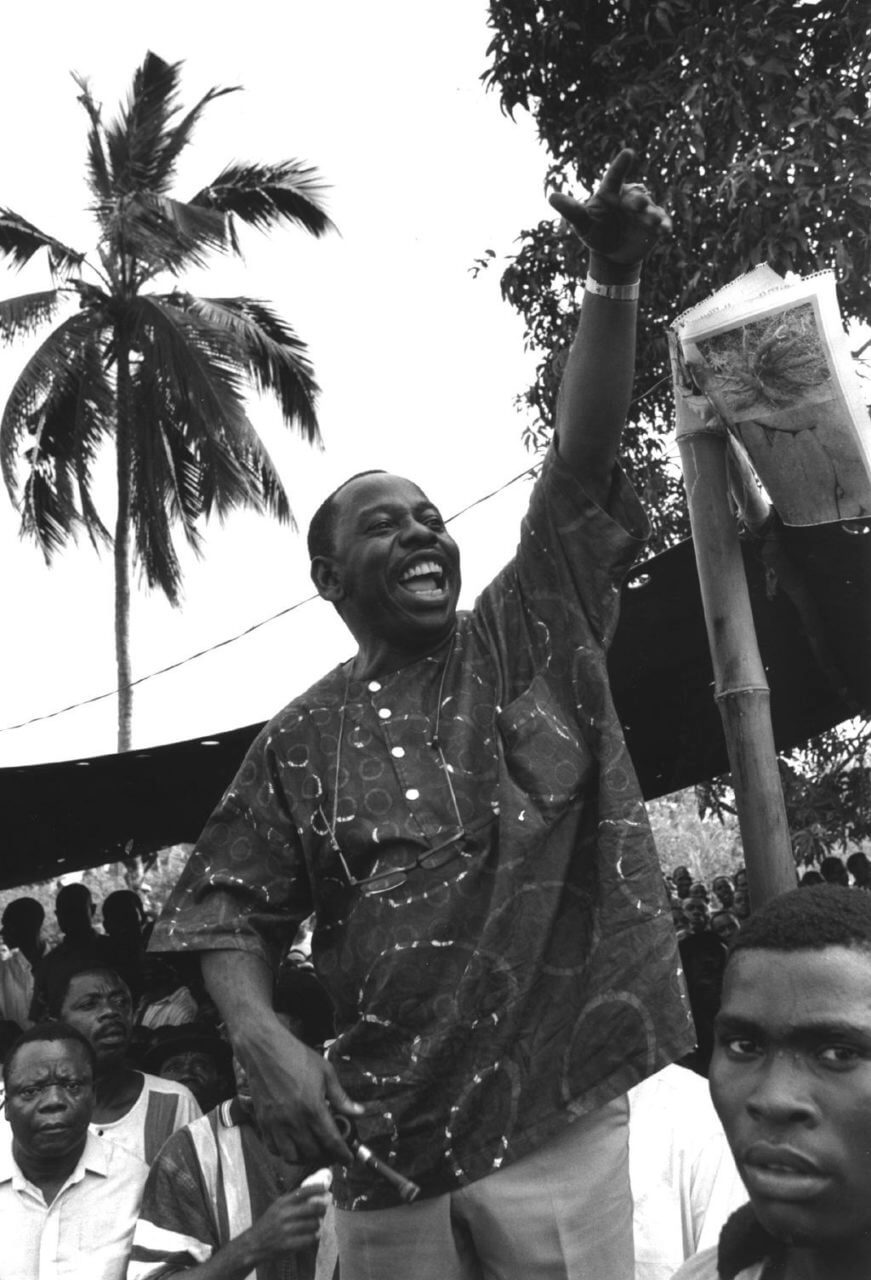
Lucy always saw her locality as connected to global struggles. She made common cause with people who were on severe frontlines in other parts of the world, often directly, such as working with her Somali friend mentioned earlier. In 1995, when Nigerian writer and environmental campaigner Ken Saro-Wiwa was executed alongside eight other Ogoni men for campaigning against oil company Shell’s destruction of their environment, Lucy had just secured funding for Artists Agency from a leading environmental charitable foundation at the time, the ‘Shell Better Britain Campaign’ (SBBC). Reader, unbelievable as it now seems, we have to remember that mainstream critique of the oil industry had not yet kicked in, even among environmental organisations and NGOs. All the oil companies had environmental charities, such as Esso Living Tree Campaign etc. Horrified to take money to restore damage from fossil fuel industry in Co Durham while Ogoniland languished in decades-long devastation from oil spills and gas-flaring, and champions of environmental justice were executed, she immediately talked with Quaking Houses Environmental Trust about giving the money back. The Trust and Lucy agreed that SBBC must be taken to task, but couldn’t they couldn’t bear to lose the chance to clean the toxic Stanley Burn. Together they entered into critical discussion with SBBC about their parent company Shell’s activities. Then they insisted Platform be brought into the conversation, and that whole exchange is another story (!)
After this we put our heads together. Platform, Helix Arts, Littoral* and David Butler of Artists Newsletter collaborated on a 2-year national network project on ethics and corporate funding, using Artists Agency’s encounter with SBBC as the case study. We brought together over 200 artists, funders, environmentalists, human rights campaigners to discuss the politics and ethics of funding through 5 national events 1996/7. ‘Funding for a Change’ was funded by the Arts Council, and it has deeply fed in to our current campaign to stigmatise oil sponsorship of arts and culture. By the early-2000s, Shell Better Britain Campaign had ceased to exist and there’s almost no trace of it online.
Lucy loved where she lived and encourages others to do so too. She was totally plugged in to her adopted city of Newcastle where she lived for over 30 years. In 1996, we were fired up by Lucy’s campaigning against the proposal to build a new Newcastle United football stadium on the Town Moor in Newcastle. ‘No Business on the Moor’ was a tornado of a fight between civil society in Newcastle and a powerful triumvirate: the football club, big business, and elements in the city council who saw the chance to make a lot of money from a new stadium.
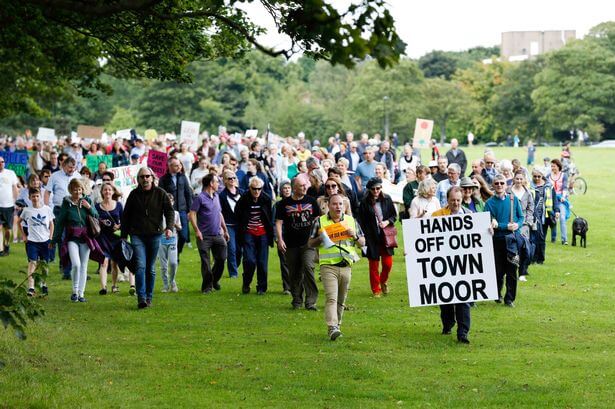
But the precious ecology of the Town Moor – a huge acreage of land near the centre of the city that is a site of ecological interest, grazing for cattle, and much-loved by Newcastle folk – was not to be bought and sold. Lucy’s tireless efforts on this are legendary in Newcastle – researching and digging up murky deals, challenging the council, stirring up support, making rallying speeches at protests and events. This cause was not ‘nimbyism’ for Lucy. Yes the moor was on her doorstep but she saw it as part of a global issue: land grabs, corporate stitch-ups, and an assault on democracy. In the face of dodgy deals and backroom motivations that showed total disregard for the environmental, legal, and cultural protection of this unique much-loved habitat, Lucy’s utter determination, bloodymindedness and political acumen was a force to be reckoned with. Her soft, lilting voice was like an iron fist in a velvet glove. A few months ago, I walked from Newcastle station to visit Lucy whose health was rapidly failing. I crossed the expanse of the Town Moor, edging round the existing Toon Army stadium, and eventually finding myself passing grazing cattle! Victory for ‘No Business on the Moor’ was hard-won and this remarkable space continues to be vigorously protected. Lineages of care and protest have an impact: only weeks before Lucy died another ‘people’s defence’ of the Moor from development took place.
That Lucy could ever ‘retire’ in the normal meaning of the word was always a startling proposition. Lucy put more energy into work, life and creativity than many of us can ever hope to imagine. When I heard that upon ‘retiring’, she had dedicated herself to learning to play folk fiddle and had brought together people to set up dynamic intercultural music project Crossings while a music student at the Sage, University of Newcastle, I was both not surprised and also dumbfounded by her all over again. Just listen to this music.
Crossings is a testament to a life’s work involved in arts, justice and environment. It is a social space that brings together refugees, asylum seekers and migrants with local people through music. Lucy was once again operating at 150%, and also worked tirelessly as an individual to support people fighting deportation.
In 2011, I went to a performance by the Crossings Band at Rich Mix, London. It was stunning, joyful, moving. To me the band creates a new now, a now of intercultural exchange, fusion, and rousing beauty, It pushes back against the xenophobia and racism that the politics of the Right would have divide us. 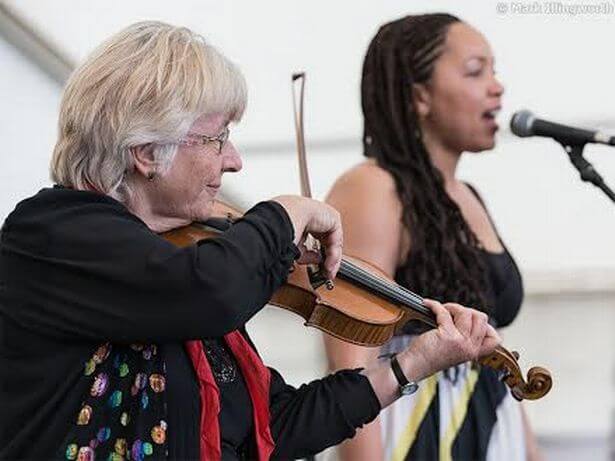 And, by the way, in the line-up of the band, there stood Lucy on the fiddle that she’d come to learn and loved late on in her life. What an extraordinarily determined personal achievement in a lifetime of groundbreaking collaborations and Lucy’s fertile, restless quest for a better world.
And, by the way, in the line-up of the band, there stood Lucy on the fiddle that she’d come to learn and loved late on in her life. What an extraordinarily determined personal achievement in a lifetime of groundbreaking collaborations and Lucy’s fertile, restless quest for a better world.
Lucy was and remains a very big influence on me personally, especially as I get older and think about what I can bring to the world. I was privileged earlier this summer to help Lucy with some of her archives and truly they are a treasure trove of inspiration and lessons for future generations. You can visit the Helix Arts’ archives at their offices in Newcastle. On that same visit to her home in Oxnam Crescent, she showed some other treasures – photographs of her daughter’s wedding in Australia a few months previously. She was also ecstatic at the thought of meeting her future grandchild. How can it not blow us all away that with typical Lucy determination, she fought off her illness long enough to have meaningful time together with her weeks-old granddaughter and daughter. On that visit, she also spoke to me of the forest garden she’d established in Chollerton. She lit up as she showed me a video of a walk along the path through this fertile, winding wonderland of flowers, fruit and other trees, shrubs and wildllife that she and friends had worked so lovingly to create over the past dozen years. This jaw-dropping beauty and eco-system, too, is what she leaves the world.
Here, I have only touched on what Lucy brought me and Platform. I have talked only about the work and projects that I had direct contact with, and there are dozens more stories to be told. Lucy was feisty, determined and one of life’s true creative searchers for a better world. Her legacy as a creative individual and as co-founder of Artists Agency/Helix Arts, and Crossings, is truly profound. It has been something truly special to have worked with her and to become a friend over these 25 years. Just weeks before her passing, Lucy won a Lord Mayor’s Award for her tireless work with Crossings.
On the day you are committed to the earth, thank you Lucy, for all you so passionately, stubbornly, and yet humbly brought into being; for the air, land, and waters you lovingly helped restore; and for the lives – human and in nature – that you have born, nurtured, inspired, honoured, and literally saved through your work.
Love Jane
*formerly Projects Environment